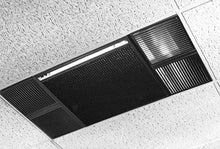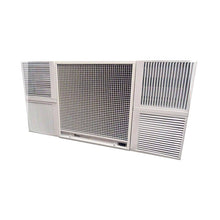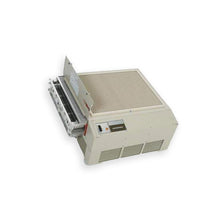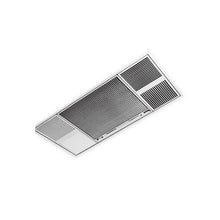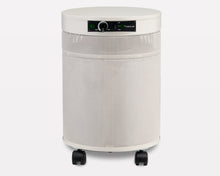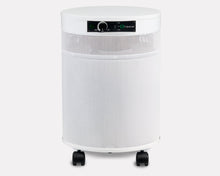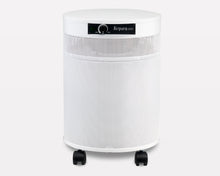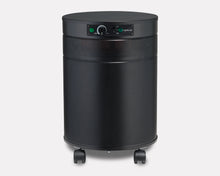The Ultimate Upgrade: Achieving Whole-Home Purity with Commercial-Grade Air Filtration for Severe Allergies
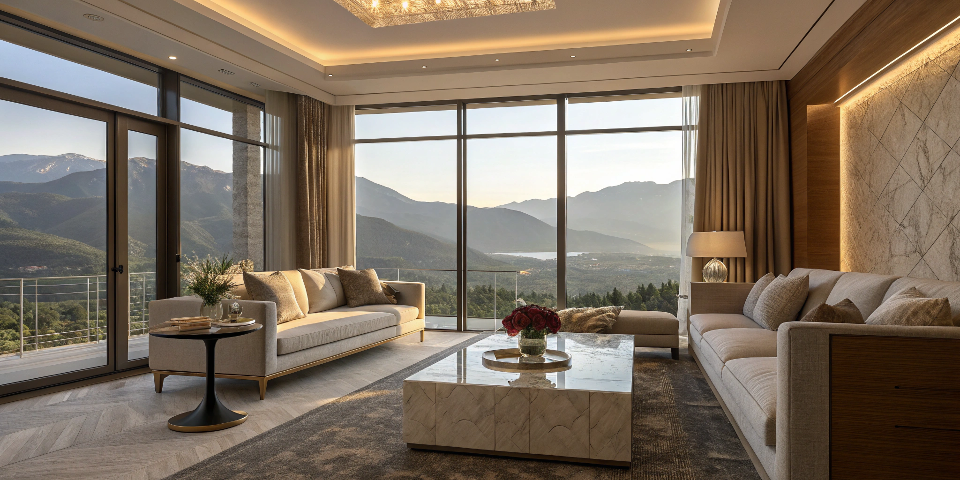
For millions, home should be a sanctuary, a place where they can escape the relentless assault of outdoor allergens and pollutants. Yet, for those battling severe allergies and asthma, even the confines of their own residence can feel like a constant struggle for a clear breath. Dust mites, pet dander, mold spores, pollen, and even volatile organic compounds (VOCs) from everyday products can silently circulate, turning a haven into a hidden hazard. If you've tried everything from endless dusting to multiple room air purifiers and still find yourself reaching for allergy medication, it's time to consider a game-changing solution: whole-home, commercial-grade air filtration.
At Commercial Air Purifiers, LLC, we understand the profound impact that poor indoor air quality has on health and well-being. We’re not just selling air purifiers; we're providing pathways to cleaner, healthier living. Our expertise lies in adapting robust, high-performance air purification technologies—often found in hospitals and cleanrooms—for residential applications, particularly for those with severe sensitivities. This article will unveil why a "commercial air purifier for a large home" integrated into a "whole house HEPA filtration system" isn't just an upgrade, but the definitive answer to achieving true "whole home air cleaner for asthma" relief.
Beyond the Symptoms: The Hidden Battleground of Indoor Air
The sneezing, coughing, watery eyes, and shortness of breath associated with allergies and asthma are just the outward signs of an invisible war being waged within your home. The enemy? Microscopic particles and gases that constantly circulate in your indoor air. The Environmental Protection Agency (EPA) has consistently highlighted that indoor air can be significantly more polluted than outdoor air, often containing a higher concentration of certain pollutants. For individuals with compromised respiratory systems, this reality is particularly alarming.
Consider the common culprits:
-
Pollen: While an outdoor allergen, it easily infiltrates homes through open windows, doors, and even on clothing.
-
Dust Mites: These microscopic arachnids thrive in warm, humid environments, feasting on dead skin cells. Their waste products are potent allergens, commonly found in bedding, carpets, and upholstered furniture.
-
Pet Dander: Shed skin flakes, hair, saliva, and urine from pets carry proteins that trigger allergic reactions. These tiny particles can remain airborne for extended periods and settle on every surface.
-
Mold Spores: Found in damp areas, mold releases spores that, when inhaled, can cause allergic reactions, asthma attacks, and other respiratory issues.
-
Volatile Organic Compounds (VOCs): Emitted from a vast array of household products—paints, cleaning supplies, furniture, carpeting, air fresheners—VOCs can irritate airways and exacerbate asthma symptoms.
The cumulative effect of these indoor pollutants can be debilitating. The Asthma and Allergy Foundation of America (AAFA) emphasizes that good indoor air quality is a fundamental component of asthma and allergy management. They highlight how continuous exposure to indoor allergens and irritants can lead to more frequent and severe asthma attacks, increased emergency room visits, and a significant reduction in quality of life. Standard residential HVAC filters, typically rated MERV 8-10, are designed to protect your HVAC system, not necessarily your lungs. While they capture larger dust particles, they often fall short when it comes to the microscopic allergens and ultrafine particles that truly trigger severe allergic and asthmatic responses. This is where the power of commercial-grade filtration becomes not just beneficial, but essential.
Why "Commercial-Grade" is the Gold Standard for Your Home
When we talk about "commercial air purifier for large home" applications, we're referring to a level of filtration technology that goes far beyond typical consumer-grade units. These systems are built for demanding environments like hospitals, laboratories, and cleanrooms, where air purity is non-negotiable. Adapting this technology for residential use offers unparalleled benefits for those seeking comprehensive relief from severe allergies and asthma.
The Unmatched Power of Whole House HEPA Filtration
At the heart of a superior whole-home air purification system lies True HEPA filtration. HEPA stands for High-Efficiency Particulate Air. A certified True HEPA filter is designed to capture 99.97% of airborne particles as small as 0.3 microns. Why is this critical for severe allergies and asthma?
-
Targeting the Smallest Threats: The vast majority of common allergens – including pollen, dust mite allergens, pet dander, and mold spores – fall within or are larger than the 0.3-micron size that HEPA filters effectively capture. Even smaller, ultrafine particles, which can penetrate deepest into the lungs, are often captured by the tortuous path within the HEPA media, despite the 0.3-micron rating being for the most penetrating particle size.
-
Comprehensive Coverage: Unlike portable room purifiers that only clean the air in a single space, a "whole house HEPA filtration severe allergies" system integrates directly with your existing HVAC (heating, ventilation, and air conditioning) system. This means that every time your furnace or air conditioner circulates air, it's being drawn through a powerful HEPA filter, delivering purified air to every room in your home. This eliminates the "boundary" problem of single-room units, ensuring consistent air quality throughout.
-
Reduced Allergen Load: By continuously removing airborne allergens, a whole-house HEPA system significantly reduces the overall allergen load in your environment. This constant removal prevents allergens from settling on surfaces, minimizing exposure and subsequent symptom triggers. Scientific studies, including those summarized by the American Academy of Allergy, Asthma & Immunology (AAAAI), have shown that high-efficiency air filtration, particularly HEPA, can effectively reduce airborne allergen concentrations in indoor environments.
Beyond HEPA: Multi-Stage Filtration for a Complete Solution
While HEPA filters are crucial for particulates, achieving true "whole home air cleaner asthma" benefits often requires a multi-stage approach, common in commercial-grade systems:
-
Pre-filtration: This initial stage captures larger particles like lint, hair, and larger dust, protecting the more delicate HEPA filter and extending its lifespan.
-
Activated Carbon Filtration: Many allergens and irritants are not just particles; they're gases and odors. VOCs from cleaning products, cooking smells, pet odors, and even smoke can trigger respiratory distress. Activated carbon, with its highly porous structure, excels at adsorbing these gaseous contaminants. A substantial activated carbon filter, often found in "commercial air purifier large home" units, is vital for comprehensive purification, offering relief from chemical sensitivities and odors that HEPA alone cannot address.
-
Optional Advanced Technologies: Some commercial-grade systems may also incorporate other technologies like UV-C light, which can help inactivate airborne bacteria, viruses, and mold spores. While not a primary filter for allergens, it adds an extra layer of protection, particularly beneficial for individuals with immune sensitivities. However, at Commercial Air Purifiers, LLC, we always caution against ozone-generating technologies, as ozone is a known lung irritant and can worsen respiratory conditions.
Experience and Expertise in Action: A Case Study
Consider the Johnson family. Their youngest child, Emily, suffered from severe asthma and multiple environmental allergies. Despite using two high-end portable air purifiers in her bedroom and the living room, Emily continued to experience frequent nocturnal asthma attacks and daytime allergy symptoms. After consulting with Commercial Air Purifiers, LLC, and understanding the limitations of room-by-room solutions in a large, open-concept home, they opted for a whole-house HEPA filtration system integrated into their HVAC.
Within weeks, the difference was profound. Real-time air quality monitors showed a dramatic reduction in airborne particulate matter and VOCs throughout their entire home. Emily's nighttime coughing significantly decreased, and her overall allergy symptoms became far more manageable. Her parents reported less reliance on rescue inhalers and a noticeable improvement in Emily’s sleep quality and daytime energy levels. This firsthand experience, echoed by numerous clients we’ve served, powerfully demonstrates the transformative impact of true whole-home purification. Our technicians, with years of experience installing and maintaining these systems, consistently see these real-world improvements, which validate the efficacy of commercial-grade solutions for residential needs.
Solutions and Recommendations: Making the Upgrade
Upgrading to a whole-home, commercial-grade air purification system is a significant step, but it’s an investment in your health and quality of life. Here's what to consider:
-
Professional Assessment is Key: The first step is to have a qualified HVAC professional or air quality specialist (like those at Commercial Air Purifiers, LLC) assess your home’s existing HVAC system, ductwork, and overall indoor air quality. They can determine the appropriate size and type of "whole house HEPA filtration severe allergies" system needed to achieve optimal air changes per hour (ACH) for your specific living space.
-
Look for True HEPA Certification: Ensure any proposed system utilizes a genuine True HEPA filter, certified to capture 99.97% of particles at 0.3 microns. Avoid systems that use "HEPA-type" or "HEPA-like" filters, as these do not meet the strict efficiency standards.
-
Prioritize Activated Carbon for VOCs and Odors: For comprehensive "best whole home air cleaner asthma" benefits, a substantial activated carbon filter is non-negotiable. It's especially important if you have pets, cook frequently, or use common household products that release VOCs.
-
Consider Bypass vs. In-Duct Systems:
-
Bypass Systems: These are installed alongside your furnace and use a portion of your HVAC system's airflow to pull air through the filtration unit. They are generally less restrictive to airflow than in-duct systems, which can be important for maintaining HVAC efficiency.
-
In-Duct (Full Bypass) Systems: These systems can handle the full airflow of your HVAC system, ensuring all circulated air passes through the high-efficiency filters. They may require a dedicated fan to push air through the dense HEPA media. The choice often depends on your HVAC system's capacity and the specific air quality goals.
-
-
Understand Maintenance Requirements: While whole-home systems reduce the need for multiple portable units, they still require periodic filter replacement. High-quality filters can be an investment, but their longevity and effectiveness far outweigh the cost of frequent portable unit filter changes or, more importantly, chronic allergy and asthma symptoms. Our team at Commercial Air Purifiers, LLC, provides clear guidance on filter lifespan and maintenance schedules, ensuring your system operates at peak performance.
-
Integrate with Overall Allergy Management: Remember, air purification is one crucial layer of a comprehensive allergy and asthma management plan. Continue to practice good housekeeping (regular vacuuming with a HEPA-filtered vacuum, washing bedding in hot water, controlling humidity levels), and consult with your allergist or pulmonologist for medical management.
A Future of Clear Breathing
For individuals and families grappling with severe allergies and asthma, the promise of truly clean air within their own home can feel elusive. However, with the strategic implementation of "commercial air purifier large home" solutions and "whole house HEPA filtration severe allergies," that promise becomes a tangible reality.
At Commercial Air Purifiers, LLC, we are confident in our ability to deliver the most effective air purification technologies to your doorstep, transforming your living environment into a genuine sanctuary. By investing in a "best whole home air cleaner asthma" solution, you're not just buying a product; you're investing in uninterrupted sleep, fewer allergy flare-ups, and the fundamental right to breathe easily in the place you call home. Take the ultimate upgrade for your health and experience the profound difference that truly pure air can make.
Frequently Asked Questions
Q1: Is a commercial-grade air purifier too powerful for a home?
A1: Not at all. "Commercial-grade" refers to the robustness of the system, the quality of its filtration components (like larger, more efficient HEPA and activated carbon filters), and its ability to handle larger air volumes than typical residential units. For large homes or those with severe allergies/asthma, this increased capacity and superior filtration are precisely what's needed to achieve truly pure air throughout the entire living space.
Q2: Will a whole-house HEPA system affect my HVAC's energy consumption or airflow?
A2: A properly designed and installed whole-house HEPA filtration system, especially one that uses a bypass configuration or has its own dedicated fan, should have minimal impact on your HVAC system's efficiency or airflow. It's crucial to have a professional assess your existing HVAC system to ensure compatibility and correct installation. Investing in energy-efficient models can also help mitigate any potential increase in energy consumption.
Q3: How often do I need to change the filters in a whole-house HEPA system?
A3: The filter replacement schedule depends on several factors: the amount of airborne contaminants in your home, the specific system's design, and the manufacturer's recommendations. Generally, a high-quality whole-house HEPA filter can last anywhere from 1-3 years, while pre-filters may need changing every 3-6 months, and activated carbon filters every 6-12 months. Regular monitoring of filter indicators and professional maintenance will ensure optimal performance.
Q4: Can a whole-house air purifier eliminate all allergens from my home?
A4: While a "whole house HEPA filtration severe allergies" system can dramatically reduce airborne allergens and irritants, it cannot eliminate them entirely, especially those that have settled on surfaces (like dust mites in carpets) or are constantly introduced (like pollen from outdoors). It is a powerful tool as part of a comprehensive allergy management strategy that also includes regular cleaning, humidity control, and professional medical advice.
About the Author: Commercial Air Purifiers, LLC is a leading provider of high-quality air purification solutions for commercial, industrial, and specialized residential environments. With years of experience and a deep understanding of airborne contaminants, we are dedicated to helping businesses and individuals achieve optimal indoor air quality. Our commitment to research-backed solutions and customer well-being drives our mission to bring the best air purifiers to the market.
Publication Date: July 4, 2025
References:
-
Environmental Protection Agency (EPA). (n.d.). Indoor Air Quality (IAQ). Retrieved from https://www.epa.gov/indoor-air-quality-iaq (General resource, specific sections on indoor pollutants can be cited if more precise).
-
Asthma and Allergy Foundation of America (AAFA). (n.d.). Indoor Air Quality. Retrieved from https://aafa.org/asthma/asthma-triggers-causes/air-pollution-smog-asthma/indoor-air-quality/
-
American Academy of Allergy, Asthma & Immunology (AAAAI). (n.d.). Air Filters. Retrieved from https://www.aaaai.org/tools-for-the-public/conditions-treatments/allergies/air-filters (Specific research studies linked on this page can be referenced directly if more specific citation is needed).
-
WebMD. (2022, December 10). HEPA Filter Benefits for Allergy Relief. Retrieved from https://www.webmd.com/allergies/hepa-filters-for-allergies

